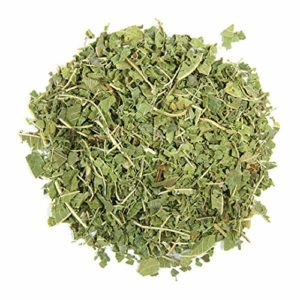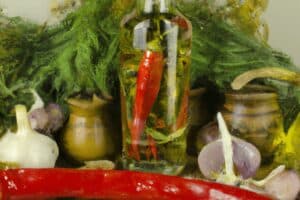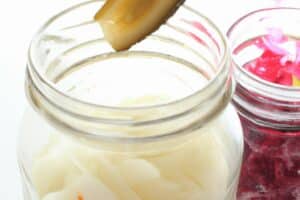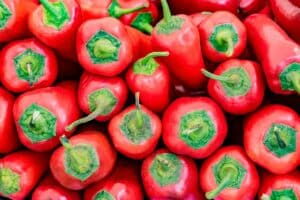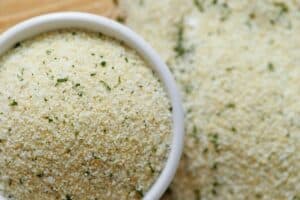Lemongrass has become quite a popular flavor note in lots of dishes, especially in Thai or Vietnamese cuisine. If you haven’t used it yet in your own cooking, you’re missing out. While it does carry a signature lemony fragrance, the distinct herb can add a dazzling depth of flavor to any dish.
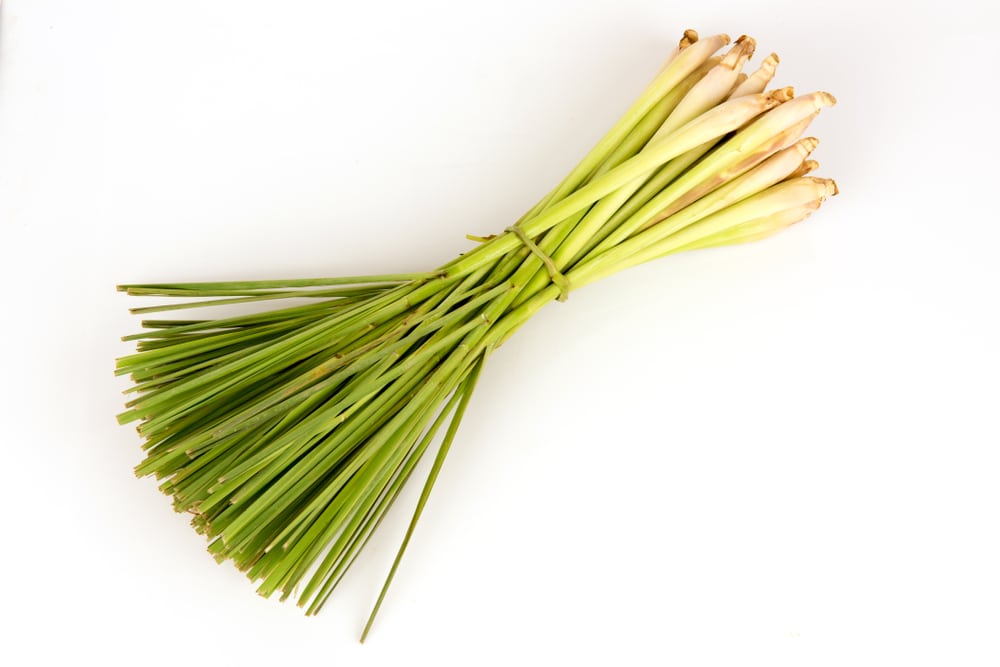
Lemongrass’s first uses were medicinal, and while still a delicious addition to your kitchen, some surprising health benefits have also come to light surrounding lemongrass. However, finding this herb can prove challenging. Maybe your local store does not sell lemongrass, or you simply forgot to buy it. What can you do? At these times, you need a lemongrass substitute.
Top 5 Lemongrass Substitutes
The best lemongrass substitutes are Lemon Verbena, Kaffir Lime Leaves, Cilantro and Ginger. Lemon balm and lemon fruit are also good lemongrass alternatives.
As a special note: a little lemon zest will help bring out the best of each herb listed below.
1. Lemon Verbena
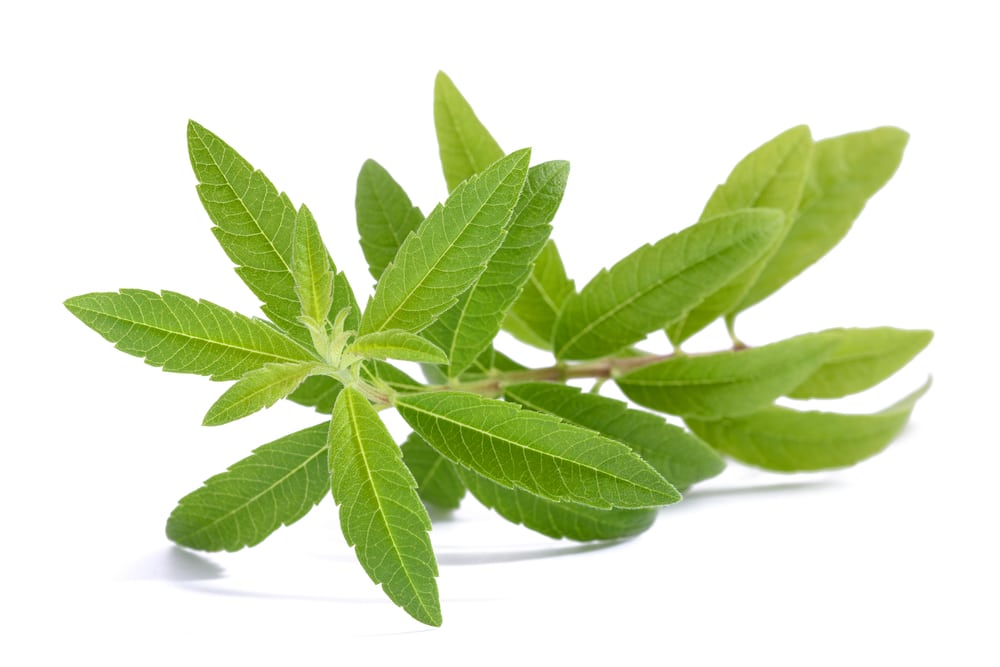
Lemon verbena is an intense herb grown natively in South America. It carries an intense amount of oil in its leaves, but the citrus flavors are not bitter like its cousins across the world which makes it an excellent lemongrass replacement. You can recognize lemon verbena by its shiny, green, pointed leaves.
Like lemongrass, you can use lemon verbena in both the kitchen and for medicinal uses. It also comes with a robust herby fragrance but is arguably much more powerful than the humble lemongrass. So, if you decide to use lemon verbena instead, proceed with caution!
If you’re shopping for this one, you can recognize fresh versions of this plant by long leaves that end in points accompanied by a rough texture. While still citrusy, this lemongrass substitute has much less lemon per inch, so make sure to augment with the zest we mentioned earlier.
When substituting with lemon verbena, use two leaves per stalk of lemongrass, and make sure to remove them before you serve your meal. No one wants to take a bite of delicious soup and instead get a sour mouthful!
2. Kaffir Lime Leaves
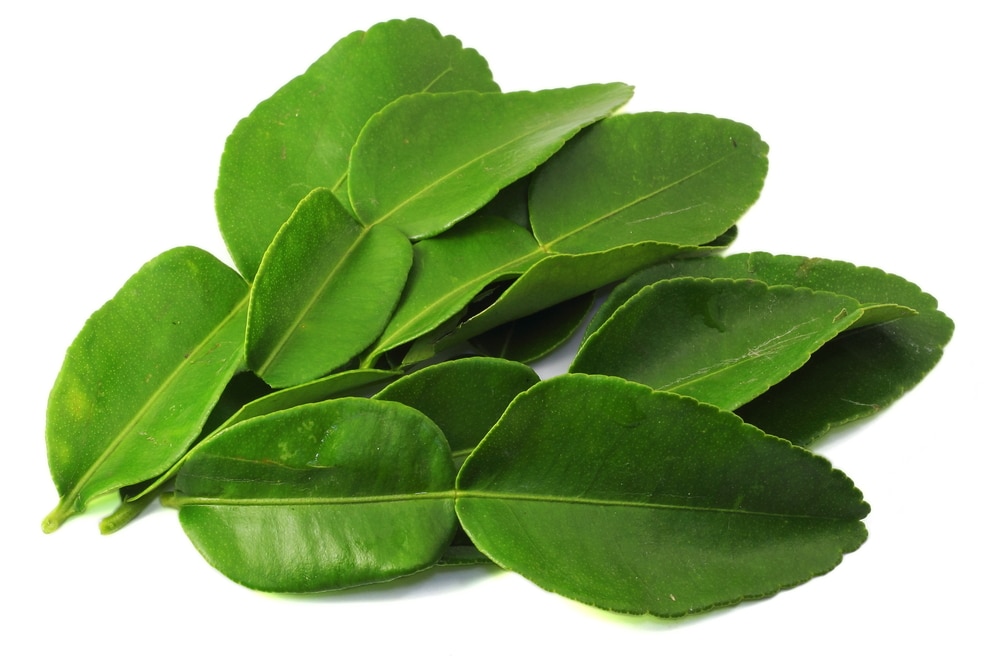
Lime is close enough, right? The Kaffir lime tree is a thorny, small bush with distinct foliage. You can always spot these leaves by their strange hourglass shape. Like lemongrass, this plant is used frequently in Thai, Cambodian, and Vietnam dishes.
These Kaffir Lime Leaves (or Thai Lime) are an option if you want to gentle the flavor. We all turn to lime when lemon is a little too strong. These are especially perfect if your curry/soup is either coconut or fish-based or if you want to add a fresh twist to a drink.
When you’re at the store, aim for fresh leaves. You’ll find healthy ones have an hourglass shape and a sheen from their natural oils. If you can’t find fresh ones, the preserved versions (either frozen or dried) are still tasty.
So when cooking with these leaves, be mindful that they’ll be about as strong as your lemongrass. You can replace each stalk with one lime leaf. And like the lemon verbena, think of them like a bay leaf—you’ll have to remove them before serving the dish.
To make that simpler, consider tying them with twine and lowering them in to cook or using cheesecloth, so it’s easier to fish them out.
3. Cilantro and Ginger
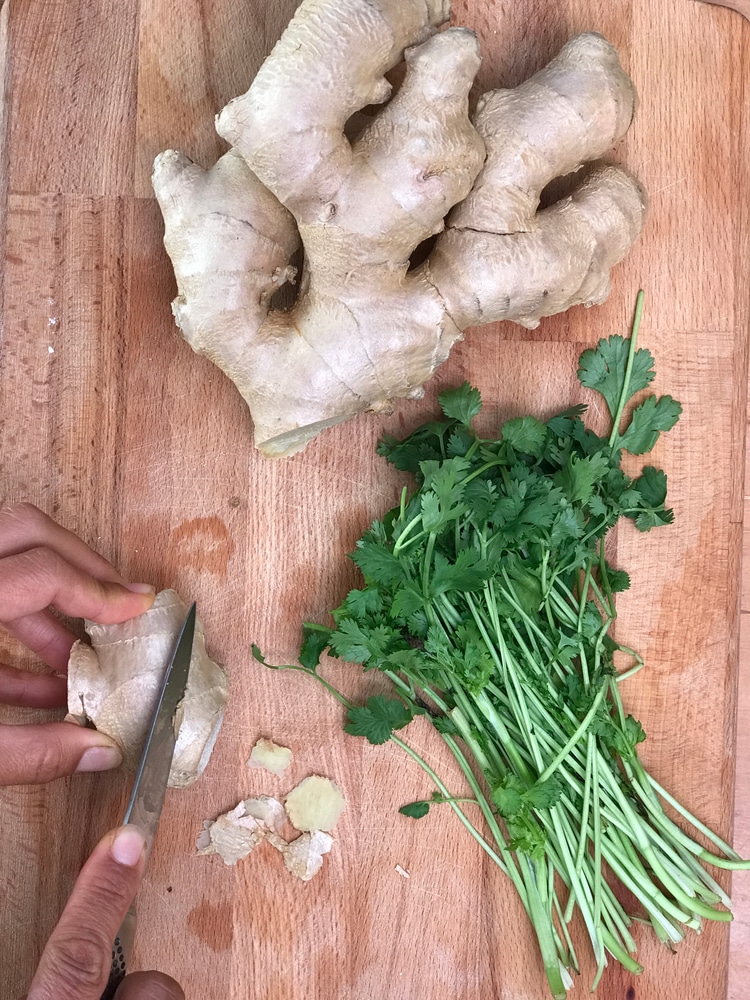
These two are a magical pairing, and you most likely have these on hand in your kitchen already. Ginger has a rich history and sits at our second most popular spice in this entire list. In 2018, the world consumption was at 2.8 million tons. As a rhizome, this root spice is related to cardamom and turmeric. It’s also considered an ayurvedic spice.
Coriander (or Cilantro since we’re talking about the stalks here) is another popular herb, and the significant part about it is that you can use the entire plant. If you use the seeds, it’s typically known as coriander, whereas the stalks are cilantro. One interesting fact is that some people carry a gene that makes cilantro taste like soap. Always ask dinner guests if they like cilantro before using this one.
Ginger itself can be used with most of the herbs on this list, along with the lemon zest, to balance out a great flavor palette. However, with cilantro, you will have a lemongrass alternative closer to the original. The ginger/coriander mixture will give your dish a sweeter, more intense aroma.
While you can find these two easily in powdered and dried form, fresh is best when you’d like to impress.
Grab the full cilantro plant at your local market along with the fresh ginger root. Make sure to peel the root and cut the stalks before adding them to your dish. Unlike the previous two, these spices will cook down just fine, so no worrying about removal before serving.
Here is a quick tip on selecting these herbs at the market: consider smelling them (especially the ginger) to make sure they have a distinct, sharp scent. The ginger’s skin should be smooth and unblemished, and the cilantro stalks should be bright green. Neither should have spots, blemishes, or mold.
4. Lemon Balm
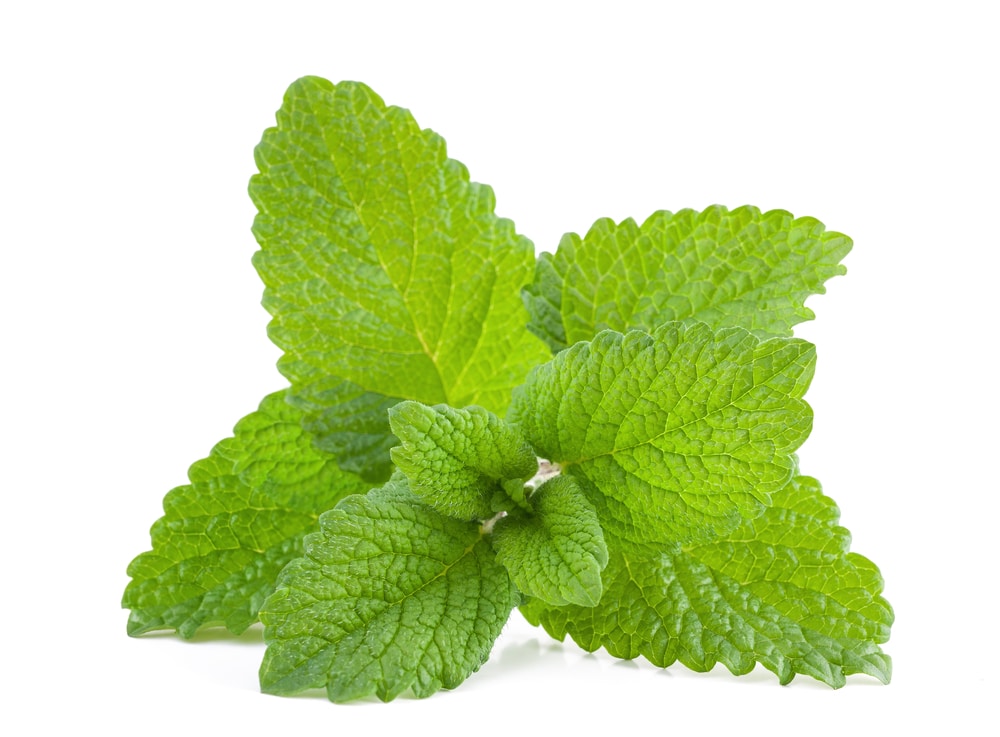
Part of the mint family, lemon balm is another spice with a rich history. Its other names are simply “balm” or “balm mint,” and it’s widely used as an ingredient for tea. Due to its attractive look and pleasant smell, you might want to grow lemon balm in your kitchen window and always have a fresh addition to your salads, soups, and teas.
A lot of herbs on this list have lemon in the name. So a good rule of thumb could be: if it’s called lemon, it could be a great lemongrass replacement.
Lemon balm is the most delicate herb on this list of options. It’s more on the mint side, so it does well when added to poultry, desserts, and teas. As such, make sure to add three lemon balm leaves for every stalk of lemongrass your recipe calls for. Like coriander and ginger, look for fresh, green leaves when purchasing at the grocery store.
One final note with lemon balm is how to cook with it. While chopping brings out more flavor, it’s also fine to add whole leaves to your dishes. It’s also acceptable to leave them in as you serve them.
5. Lemon

We know this sounds like a given, but we did want to include this on the list. Lemon is an entirely acceptable lemongrass substitute.
This yellow fruit’s juice has a high acidity (around 5%), giving it the wonderfully sour taste we all know and love. While it has been around for centuries, historians are unsure whether it was a natural growth or if it’s the hybrid fruit between a citron and a bitter orange. Either way, this staple beats ginger hands down at 19.4 million tons produced.
This one is also the most versatile as you can use its meat, peel, and juice in cooking, and they each produce a different flavor. We recommend using the zest to prevent the lemon flavors from overpowering the rest of the dish. The fruit’s natural oils are found in the peel and better for this use than the more acidic tart juice.
To make it easier, use the zest from one medium-size lemon in place of one stalk for your recipes. If you’re unsure how to zest a lemon or even lack the proper tools, try this guide for zesting lemons in three different ways.
Other Lemongrass Alternatives and Final Tips
Honorable mentions for this list include arugula and kreung (lemongrass paste). All of these spices should do just fine in your recipes as a lemongrass substitute. It’s all a matter of taste to find the perfect flavor pairing in your cuisine.
The last guidelines we can leave you with are to experiment with smaller parts of the sauce or broth. Set aside bowls or cups with cooked portions of your broth and add tiny amounts of each herb to test which ones taste the most delicious with your personal palette.
We suggest starting with a lemon zest/ginger combination. They have the most common flavors, affordable pricing, and they’re more approachable than other herbs on this list. Think of each dish as a new adventure, and you can’t go wrong.

